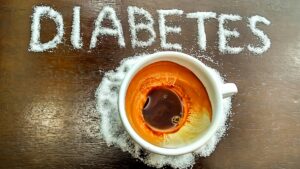Coffee is a favorite drink for millions of people around the world, and not only is it a great pick-me-up, it can also help you perform better during exercise. Caffeine content is known to help gamers in many ways, from making them more focused and lasting longer, to making them feel less tired. This article discusses the role of coffee in athletic performance, its potential benefits, and how you can integrate coffee into your training.
The Science Behind Coffee and Your Athletic Performance:
Caffeine, the main component of coffee, is a natural stimulant that can benefit athletes in several ways. It works by blocking the secretion of adenosine, a neurotransmitter that makes you feel calm. This makes you more alert and less tired. Additionally, caffeine releases adrenaline, helping you perform better at high-intensity tasks.
Why Coffee is Good for Athletes:
Better Endurance
Several studies have shown that caffeine can improve endurance performance by providing more fatty acids. Fatty acids are used as fuel during prolonged exercise. This can help players sustain high-intensity efforts for longer.
Better Focus and Alertness
Caffeine can also help you focus and stay alert, which can help athletes during training and competition, especially in sports that require quick decisions and reactions.
Learned Perception of Effort
Research shows that coffee can make a tough workout easier by making the workload during exercise seem less intense. This, in turn, helps players try harder and perform better.
Better Fat Burning
Research shows that caffeine can speed up fat burning. This means that the body can use fat as fuel more efficiently. This is especially useful for endurance athletes who obtain energy from fat during prolonged exercise.
How to Make Coffee Part of Your Daily Routine:
Time
Drinking coffee 30 to 60 minutes before exercising can help you perform better. This gives the caffeine enough time to enter the bloodstream and reach peak levels.
How Much Should You Take:
For better exercise performance, the optimal caffeine intake is 3 to 6 mg per kilogram of body weight. This can vary from person to person, as everyone responds to and tolerates caffeine differently. So it’s important to try different doses to determine what works best for you.
Do Not Overdose
Caffeine helps you work better, but too much can have adverse effects, such as nervousness, anxiety, and stomach problems. Coffee should only be consumed in small amounts, and you should be aware of the amount of caffeine you consume from other foods and drinks.
Drink a Lot of Water
Because caffeine is a diuretic, it makes you urinate more, causing water loss. It is important to drink enough water before, during, and after exercise, especially if you have drunk coffee.
Things Athletes Need to Think About:
Individual Response
Caffeine does not work the same way for everyone. Caffeine may help some players more than others, so it’s important to see how your body reacts and vary the amount you drink accordingly.
How It Reacts with Other Substances
Because caffeine can interfere with the effects of some medications and supplements, talk to your doctor before adding coffee to your exercise routine, especially if you are already taking medications or supplements.
Goodwill and Source
The type and quality of coffee can also affect how much it boosts your performance. When you choose high-quality organic coffee, you can rest assured that you’re getting all the health benefits, without any foreign ingredients or contaminants.
Conclusion:
Overall, coffee can be a useful tool for athletes who want to increase their efficiency naturally. Because it contains caffeine, it can help you focus, stay focused longer, and feel less tired. So it is a great drink to drink before training or a competition. But it’s important to drink coffee in balance and be aware of the bad things that can happen if you do. When used correctly, coffee can be an important part of your exercise routine and help you achieve your athletic goals.
FAQs:
1. How does coffee help players get stronger?
Coffee contains caffeine, which causes the body to release fatty acids into the bloodstream. These fatty acids provide energy during prolonged exercise, allowing athletes to maintain high intensity for longer.
2. Can coffee help you concentrate while exercising?
Yes, the caffeine in coffee helps you concentrate and stay awake by blocking adenosine, a neurotransmitter that makes you feel calm. This can greatly help athletes during training and competition, especially in sports that require quick decisions and quick reactions.
3. Is there a best time to drink coffee to improve physical performance?
Drinking coffee 30 to 60 minutes before exercising can help you perform better. This gives the caffeine enough time to enter the bloodstream and reach peak levels.
4. How Much Caffeine Should You Consume to Improve Your Physical Performance?
For better exercise performance, the optimal caffeine intake is 3 to 6 mg per kilogram of body weight. But everyone tolerates and responds to caffeine differently, so you should try different amounts to see what works best for you.
5. Will something bad happen if I drink coffee before exercising?
Although coffee can help you perform better during exercise, drinking too much coffee can also have adverse effects, such as nervousness, anxiety and stomach problems. Coffee should only be consumed in small amounts, and you should be aware of the amount of caffeine you consume from other foods and drinks.



